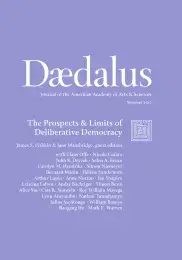Authoritarian Deliberation in China
Authoritarian rule in China increasingly involves a wide variety of deliberative practices. These practices combine authoritarian command with deliberative influence, producing the apparent anomaly of authoritarian deliberation. Although deliberation and democracy are usually found together, they are distinct phenomena. Democracy involves the inclusion of individuals in matters that affect them through distributions of empowerments like votes and rights. Deliberation is the kind of communication that involves persuasion-based influence. Combinations of command-based power and deliberative influence – like authoritarian deliberation – are now pervading Chinese politics, likely a consequence of the failures of command authoritarianism under the conditions of complexity and pluralism produced by market-oriented development. The concept of authoritarian deliberation frames two possible trajectories of political development in China. One possibility is that the increasing use of deliberative practices stabilizes and strengthens authoritarian rule. An alternative possibility is that deliberative practices serve as a leading edge of democratization.
